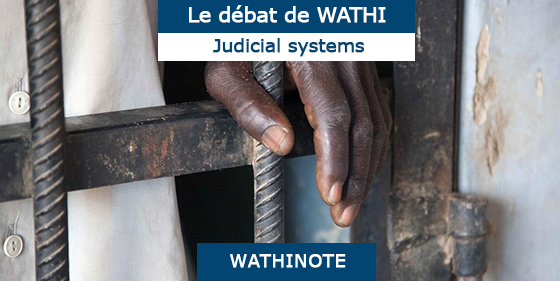

Author (s):
Gambia Legal Support
Date of Publication:
2012
The Gambia’s legal system contains elements of English common law, Gambian statutory law, customary law and religious law (mainly Islamic law).
The court structure in The Gambia operates at two levels: namely, the superior and subordinate courts.
Superior Courts in The Gambia
The superior courts consist of the Supreme Court, the Court of Appeal and the High Court.
The Supreme Court is the highest court in the judicial system of The Gambia, having appellate jurisdiction over appeals from cases concluded by the Court of Appeal, whilst the Court of Appeal has jurisdiction over appeals from the High Court, and other courts and tribunals.
In addition, the Supreme Court has exclusive jurisdiction over matters relating to presidential elections, and issues advisory opinions on matters involving the interpretation or application of the Constitution and in matters of general importance.
Subordinate Courts in The Gambia
In addition to the superior courts, the Constitution provides for subordinate courts such as Magistrates’ courts, Kadhi courts, court martial, and any other court or local tribunal established by an Act of Parliament.
The traditional, or Kadhi courts are presided over by a local chief and a council of elders who profess the Islamic religion and have knowledge of Islamic law. These courts have jurisdiction over limited types of proceedings relating to personal status, marriage, divorce or inheritance.
Mediation & Arbitration Services in The Gambia
Besides the formal court system, other dispute resolution mechanisms are used by Gambian citizens to pursue grievances and conflicts, including mediation and arbitration.
Mediation by community elders has also been said to be preferable because of the relatively lower cost and ease of access, compared to formal court structures; however, such forums may not permit a party to be represented by an advocate of his or her choosing.
Accordingly, it has been recommended that the government institutionalize such forms of dispute resolution (which would ease the backlog in the formal court system) and ensure that traditional justice systems adhere to constitutional norms of equality and non-discrimination
Les Wathinotes sont soit des résumés de publications sélectionnées par WATHI, conformes aux résumés originaux, soit des versions modifiées des résumés originaux, soit des extraits choisis par WATHI compte tenu de leur pertinence par rapport au thème du Débat. Lorsque les publications et leurs résumés ne sont disponibles qu’en français ou en anglais, WATHI se charge de la traduction des extraits choisis dans l’autre langue. Toutes les Wathinotes renvoient aux publications originales et intégrales qui ne sont pas hébergées par le site de WATHI, et sont destinées à promouvoir la lecture de ces documents, fruit du travail de recherche d’universitaires et d’experts.
The Wathinotes are either original abstracts of publications selected by WATHI, modified original summaries or publication quotes selected for their relevance for the theme of the Debate. When publications and abstracts are only available either in French or in English, the translation is done by WATHI. All the Wathinotes link to the original and integral publications that are not hosted on the WATHI website. WATHI participates to the promotion of these documents that have been written by university professors and experts.
